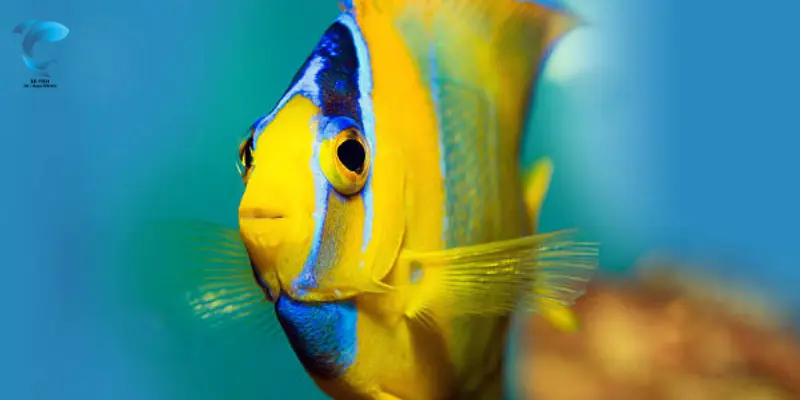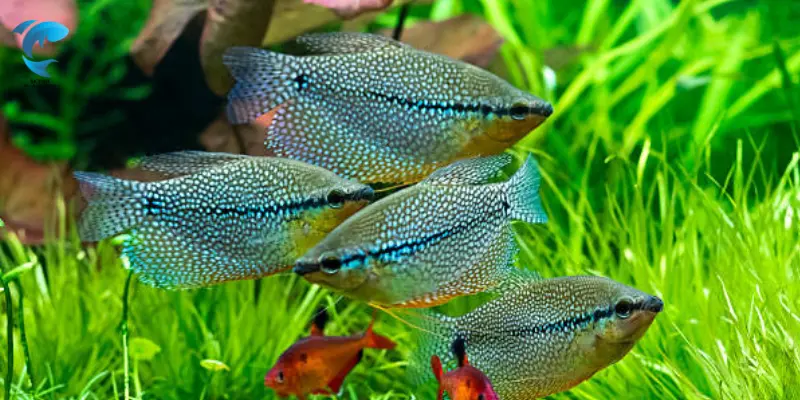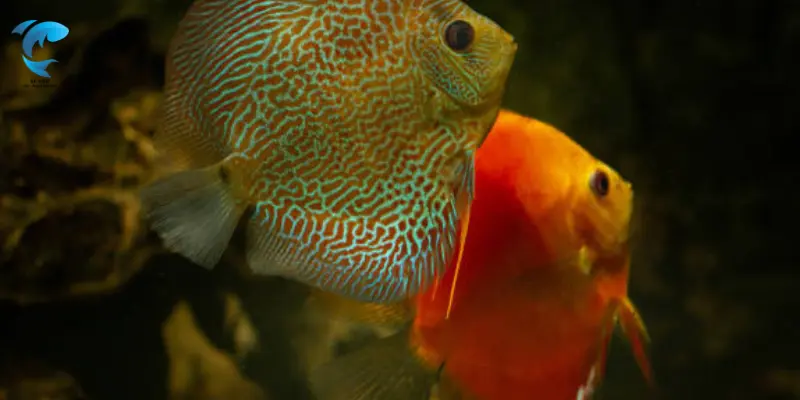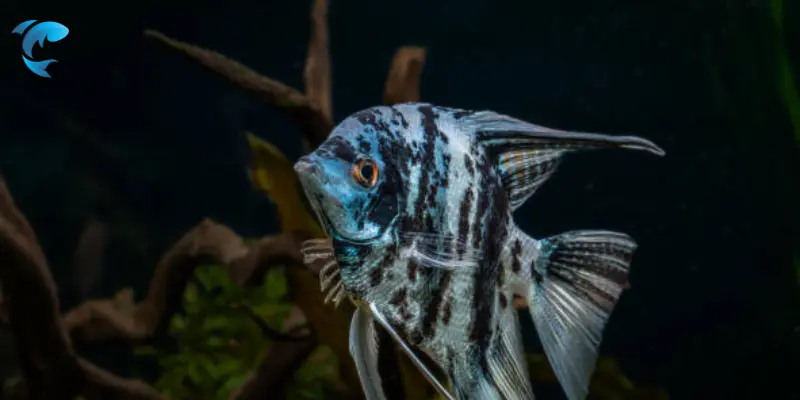Angelfish Tank Mates: A Beginner’s Guide to Perfect Companions
Published: 28 Mar 2025
Choosing the right tank mates is one of the most important decisions you’ll make when setting up an aquarium with Angelfish. Selecting compatible fish ensures a peaceful, beautiful community tank and promotes the health and happiness of your Angelfish and their companions.
However, picking tank mates that work well with Angelfish can be a bit tricky, as these majestic creatures have specific needs and preferences that must be considered.
This comprehensive guide will walk you through everything you need to know about choosing the best Angelfish tank mates, including a complete Angelfish tank mates list, how to set up your Angelfish tank, and additional tips for keeping your fish healthy.
Whether you are new to fishkeeping or a seasoned aquarium hobbyist, this article will provide valuable insights backed by expert advice to ensure your Angelfish thrives in a harmonious aquarium.

Understanding Angelfish Behavior
Before choosing the best Angelfish tank mates, it’s essential to understand the fish’s behavior and the environment they need to thrive.
- Temperament and Social Nature: Angelfish are generally peaceful but can become territorial, especially during the breeding season. This means Angelfish do best in aquariums with fish that do not challenge their space or food. Although they can be territorial, they typically do not exhibit the same aggressive behaviors as many other species of cichlids.
- Ideal Tank Conditions: Angelfish are native to the warm waters of South America. They thrive in water temperatures ranging from 76°F to 82°F (24°C to 28°C). Their pH range should be between 6.5 and 7.5; they prefer moderately soft to slightly hard water. Maintaining these conditions consistently is essential to keep your Angelfish healthy and stress-free.
- Dietary Needs: Angelfish are omnivores and will happily consume a variety of foods, including high-quality flake food, pellets, live foods (like brine shrimp), and plant matter. A balanced diet is essential to maintaining their vibrant colors and overall health.
Why Choosing the Right Tank Mates Matters
Selecting the right Angelfish tank mates is crucial for creating a peaceful and thriving community aquarium. When incompatible, fish can cause stress, aggression, and health issues. Here’s why it matters:
- Risk of Aggression: Some fish may be overly aggressive or territorial, resulting in constant stress for your Angelfish.
- Stress and Illness: Incompatible tank mates may compete for food, territory, or hideouts, leading to stress, which weakens the immune system and can cause diseases.
- Environmental Compatibility: Angelfish have specific water requirements that all fish may not share, so choosing tank mates with similar needs is essential.
Understanding Angelfish behavior and choosing suitable companions can prevent these issues and create a thriving, harmonious environment for all your fish.

Best Angelfish Tank Mates
The following fish species are ideal for Angelfish, as they share similar water requirements and are peaceful enough to coexist in the same aquarium.
1. Tetras
Tetras, such as Neon and Cardinal Tetras, are among the best Angelfish tank mates. They are small, peaceful, and like to go to school, reducing their stress and aggression risk. Their peaceful nature and small size make them perfect companions for Angelfish in community tanks. Plus, their striking colors complement the beauty of Angelfish.
2. Corydoras Catfish
Corydoras Catfish are bottom-dwellers that are both peaceful and helpful in keeping your aquarium clean by scavenging leftover food. Their docile temperament makes them great tank mates for Angelfish, and they thrive in similar water conditions. Additionally, Corydoras are hardy and easy to care for, making them a good choice for beginner and experienced aquarists.
3. Guppies
While Guppies are more miniature than Angelfish, they can be excellent companions, especially in a large tank. Guppies are peaceful, colorful, and relatively easy to care for, and they typically do well in the same tank as Angelfish provided the tank is large enough to allow ample space. However, be cautious about overbreeding, as Guppies reproduce quickly.
4. Otocinclus Catfish
Otocinclus Catfish are small, peaceful, algae-eating fish that won’t compete with Angelfish for space or food. These bottom-dwellers help keep your aquarium clean by feeding on algae, which is beneficial for maintaining a healthy tank environment.
5. Discus Fish
Discus Fish are closely related to Angelfish and have similar care requirements. They are peaceful and thrive in the same water conditions, making them an excellent choice for a community tank. However, Discus Fish require a slightly larger tank, so plan accordingly if you wish to include them as tank mates.
Other Good Tank Mates for Angelfish
In addition to the fish mentioned above, here are a few more Angelfish tank mates that are known to get along well with Angelfish:
- Gouramis: Peaceful and available in various sizes, Gouramis can coexist peacefully with Angelfish, provided that the tank is large enough.
- Rainbowfish: These colorful fish are active but peaceful, and they can add a vibrant splash of color to your aquarium.
- Mollies: Mollies are hardy fish that can thrive in a wide range of water conditions and are known for their peaceful nature.
- Platies and Swordtails are small, colorful, and peaceful, making them ideal companions for Angelfish in a community tank.

Fish to Avoid in Your Angelfish Tank
Some fish should be avoided when setting up a tank with Angelfish. These fish can cause stress, aggression, or harm to your Angelfish:
- Aggressive Fish: Species like Cichlids, Barbs, and certain Tetras (e.g., Serpae Tetras) can be overly aggressive, leading to stress or injury for your Angelfish.
- Fast-Swimming Fish: Fish like Danios can outcompete Angelfish for food, causing tension in the tank.
- Large Predators: Fish such as Oscars and Arowanas can be too large and aggressive for Angelfish.
- Fin-Nipping Fish: Fish that nip fins, such as Serpae Tetras and Barbs, can damage the delicate fins of Angelfish, leading to stress and injury.
Angelfish Tank Setup
To create a harmonious environment for your Angelfish tank mates, consider the following tank setup tips:
1. Tank Size
Angelfish requires a minimum tank size of 20 gallons for a pair. However, larger tanks are better, especially if you plan on adding Angelfish tank mates. For a community tank with Angelfish, a 55-gallon tank is often ideal. A larger tank allows for more space for everyone to establish their territories.
- Angelfish minimum tank size: 20 gallons
- Angelfish tank mates 55 gallons: Ideal for larger community setups.
- Koi angelfish tank size: 30 gallons or larger
2. Water Parameters
The water parameters for Angelfish and their tank mates should be similar. Maintain the following ranges:
- Temperature: 76°F – 82°F (24°C – 28°C)
- pH: 6.5 – 7.5
- Hardness: 3-8 dKH
3. Tank Plants and Decorations
Adding plants and decorations is aesthetically pleasing and provides hiding spots for your Angelfish and tank mates. Live plants like Java Fern, Anubias, and Amazon Sword are great options. These plants create a more natural environment and help with water filtration.
- Best plants for Angelfish: Anubias, Java Fern, Amazon Sword
4. Filtration and Aeration
Proper filtration is essential to maintain clean water. Angelfish prefer well-oxygenated water, so ensure that your filtration system is efficient and appropriate for the size of your tank. A gentle air stone can help increase oxygen levels and improve water circulation.
Angelfish Breeding Tips
If you plan to breed your Angelfish, here are some tips to help ensure success:

- Provide a flat surface like a broad leaf or rock for the female to lay her eggs.
- Maintain optimal water conditions with stable temperature and pH.
- Offer a varied diet to encourage healthy egg production.
- Separate the breeding pair from other fish to protect the eggs from being eaten.
Angelfish Diseases and Treatments
Angelfish are susceptible to diseases like Ich, Fin Rot, and Velvet Disease. To keep your fish healthy:
- Perform regular water changes.
- Maintain proper filtration and water parameters.
- Quarantine new fish before introducing them to the main tank.
- Treat illnesses promptly with appropriate medications, following the manufacturer’s instructions.
Conclusion
Selecting the right Angelfish tank mates is essential for creating a peaceful and thriving aquarium. Understanding Angelfish behavior, maintaining optimal tank conditions, and choosing compatible species can ensure a harmonious community tank where you and your companions live in peace. Whether you have a 30-gallon aquarium or a larger tank, following these tips will help create a beautiful and healthy environment for all your fish.
Remember always to research the specific needs of each species and monitor your tank regularly for signs of stress or aggression. With the proper care and attention, your Angelfish tank mates will thrive, creating a stunning display in your home aquarium.
FAQ: Angelfish Tank Mates
Goldfish and Angelfish have different care requirements, which makes them poor tank mates for each other. Angelfish are tropical fish, requiring warmer water temperatures of around 76-82°F (24-28°C), while goldfish thrive in cooler water temperatures of 65-75°F (18-24°C). Due to the temperature differences, their living conditions are incompatible, which can lead to stress and health issues. Goldfish are bottom-dwelling fish that might stir up debris in the tank, which can irritate Angelfish. In short, goldfish and Angelfish should not be housed together.
Angelfish can live with other peaceful species that thrive in similar water conditions. Some of the best tank mates for Angelfish include:
- Corydoras Catfish: These small, peaceful bottom dwellers are a good match for Angelfish. They help keep the tank clean by scavenging leftover food.
- Neon Tetras: Their small size and peaceful nature make neon tetras excellent companions for Angelfish. They swim in the tank’s middle and upper levels, avoiding direct interaction with Angelfish.
- Guppies: Guppies can coexist with Angelfish, though care should be taken with undersized or juvenile Angelfish, as guppies’ small size might make them tempting prey.
- Otocinclus Catfish: Known for their algae-eating habits, these small catfish help keep the tank clean and pose no threat to Angelfish.
- These species have similar water temperature and pH needs, making them ideal for a peaceful, harmonious aquarium.
orial or aggressive, which can cause stress or even injury to Angelfish. However, some cichlids can live peacefully with Angelfish, such as:
- Keyhole Cichlids are known for their calm demeanor. They rarely cause trouble and can share a tank with Angelfish.
- Discus Fish: Although discus are more delicate, they share water conditions similar to Angelfish and can cohabit if the tank is large enough and the water quality is well-maintained.
Before introducing cichlids to a tank with Angelfish, it’s essential to consider their size, temperament, and territorial nature. While Angelfish are cichlids, not all cichlids are suitable tank mates. Some cichlid species can be very territ
Yes, some species should be avoided when keeping Angelfish due to their aggressive or incompatible nature. These include:
- Betta Fish (Siamese Fighting Fish): Betta fish are known for their aggressive behavior, especially toward other fish with long fins, like Angelfish. They may attack and stress out the Angelfish.
- Sharks (Rainbow or Red-Finned): Certain sharks can be territorial and aggressive. Their behavior can cause undue stress or physical harm to Angelfish.
- Large Tetras or Barbs: Larger or more aggressive species, like the tiger barb, may nip at angelfish fins, which can cause injuries or decrease the Angelfish’s overall health.
- Piranhas: Due to their carnivorous nature and predatory behavior, piranhas are unsuitable tank mates for Angelfish.
When choosing tank mates, it’s crucial to consider the fish’s size, temperament, and the type of tank environment you wish to create.
To prevent aggression and ensure a peaceful tank environment, consider the following tips:
- Provide Adequate Space: Angelfish need plenty of space to swim, especially as they grow. Overcrowding can lead to territorial disputes and stress. A larger tank (at least 30 gallons for a pair of Angelfish) can reduce the chances of aggression.
- Decorate with Hiding Spots: Include plants, caves, and decorations that allow fish to create their territory and retreat if needed. This is especially helpful in reducing stress between Angelfish and their tank mates.
- Monitor Fish Compatibility: Always research the temperament and size of fish before introducing them into the tank with Angelfish. Peaceful species that swim at different levels (top, middle, or bottom) are less likely to compete or cause conflict.
- Avoid Adding Fish During Spawning: Angelfish are known to become very territorial when breeding. It’s a good idea to avoid adding new tank mates during this time, as Angelfish may become more aggressive in protecting their eggs and territory.
Maintaining a peaceful environment with plenty of space and hiding spots can reduce the likelihood of aggression between Angelfish and their tank mates.

SK Fish is your trusted source for practical fish care tips and delicious seafood recipes. Our team is dedicated to providing reliable, well-researched content for fishing enthusiasts and home cooks alike.

- Be Respectful
- Stay Relevant
- Stay Positive
- True Feedback
- Encourage Discussion
- Avoid Spamming
- No Fake News
- Don't Copy-Paste
- No Personal Attacks



- Be Respectful
- Stay Relevant
- Stay Positive
- True Feedback
- Encourage Discussion
- Avoid Spamming
- No Fake News
- Don't Copy-Paste
- No Personal Attacks


![Discover the Truth: How Long Does It Take for Guppies to Breed? [Expert Tips Inside]](https://skfish.com/wp-content/uploads/guppy-how-to-breed-200x133.webp)
![The 7 Best Freshwater Fish for Low Light Tanks [Hassle-Free Setup and Maintenance]](https://skfish.com/wp-content/uploads/best-freshwater-fish-for-low-light-tanks-200x133.webp)
![How to Set Up a Freshwater Fish Tank in 5 Easy Steps [No Experience Needed, Avoid Common Pitfalls]](https://skfish.com/wp-content/uploads/how-to-set-up-a-freshwater-fish-tank-in-5-easy-steps-200x133.webp)
